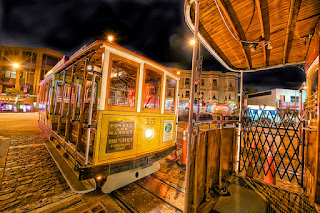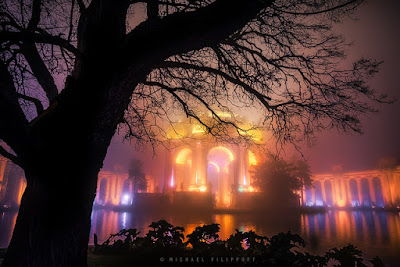Stella Starsky and Quinn Cox, a real-life married couple, are modern
metaphysicians, cultural commentators and astrological consultants with
an international private clientele. They are the best-selling authors of
Sextrology: The Astrology of Sex and the Sexes
(Harper, 2004) and
Cosmic Coupling: The Sextrology of Relationships
(Crown, 2009), and have
contributed columns and features to myriad publications and sites
worldwide, including Vogue, Allure, Cosmopolitan, The Daily Beast, Elle and Glamour.
http://www.starskyandcox.com/
 |
| Photo by Ric Ide |
To celebrate Valentine's Day, JJ Marsh finds out more.
People have reactions across the spectrum to their astrological sign, from fascination to disbelief. But everyone is interested in sex. You’ve combined a knowledge of the zodiac with a curiosity as to behavioural patterns. That seems to come from an understanding of people and a knowledge of archetypes.
We like to watch. Seriously, our shared interest and ultimate immersion in astrology all began with observation. Beginning in our student days, we noticed that men and women of the same sign were often very different from each other. Such that, as an expression of our own brand of humanistic astrology, we consider the Zodiac to have twenty-four gender signs. Still, unlike work with private individual clients, successfully writing on the subject of general sun-sign astrology requires exposing specific elements of truth about each of the signs.
Over decades of observation we have discerned twenty-four distinct archetypes, under which we all in turn fall, and wherein we share, with others of our sign, more than meets the eye. Obvious traits in appearance and behavior unite folks under the aegis of their sign; while there are deeper, more metaphysical motivators at play. You can't escape your archetype, we say, and we credit the symbolically rich Zodiac with offering infinite insights into we the people born under them. And our archetypes don't get checked at the bedroom door: Sex and sexuality are important elements of personhood and so, in our philosophy, our signs likewise determine our intimate predispositions and proclivities.
 Sextrology, your exceptional bestseller, is far more than A-goes-with-B-but-leave-C-well-alone. It is erudite, witty and draws on a range of concepts, examples, mythology, symbols and well-known icons. It feels full of stories.
Sextrology, your exceptional bestseller, is far more than A-goes-with-B-but-leave-C-well-alone. It is erudite, witty and draws on a range of concepts, examples, mythology, symbols and well-known icons. It feels full of stories.
We conceived Sextrology to function on a number of levels simultaneously. The Sex- in the title was meant to signify gender first and sexuality second. We definitely wanted to get our original philosophy out there, and really build an argument. But we wanted to temper those more academic suppositions with a supple, straightfoward style. It isn't your granny's astrology. We like to think we read like lively, heady dinner party conversation, at turns serious and sophisticated and funny, comparative in sociology, religion and literature, weaving myths and fairy tales and pop references into something approaching seamless. We want to tickle funny bones as well as challenge minds on the subject. Not to mention have a little stylistic fun with the erotic bits.
We are all full of stories. And, for some reason we can't fully understand, those born under the same sign do share a similar plot. Be it real, metaphorical or metaphysical. As we continue to trace the myths and legends of multiple archetypal figures associated with any particular sign, these stories do serve, in many ways, as parables for those born under it.
In addition to the book, you have written regular astrological columns and advised some A-list celebrities: Mario Testino and Scarlett Johansson are among your purported fans. Everyone seems in awe of your accuracy and insight. How did you develop your expertise?
Through constant practice of our craft and continued exercise of our intuition. Yes, a substantial majority of our clients are in the entertainment, art and fashion industries. As a team we bring different talents to the table. Astrology is a language of symbols and the distinct arrangements of the planets in the various signs and astrological houses. The overall pattern they form, in a person's astrological charts, speaks volumes. There are upwards of eighty-four schools of astrology. We are humanistic astrologers. And we center on helping clients make the most of their potential, providing them tools for negotiating their would-be patterns and pitfalls. We all have them. We work on our craft and the technique of interpretation, focusing on the here and now with our clients; while allowing for occasional, as we say, "off the page" flashes of intuitive insight.
Dividing the Zodiac into 24 signs was groundbreaking. You have a different take on Virgo Man and Virgo Woman, for example, whereas previously one size fit all. When it comes to sexuality, you cover straight and gay males/females of each sign, but how does someone who is transgender or identifies as non-binary read this?
When Sextrology was published in 2004, we unfortunately weren't having the same conversation about transgenderism as we are today. There are many meaningful transgender myths and archetypes —Hermaphrodite, Tierisias and Caenis to name a few—that we dig into, and from whose cosmic power and inspiration individuals can draw.
Most friends who've transitioned have done so in the years since we first published Sextrology. As it was, we had to petition publishers for equal measure of gay and straight content. In Cosmic Coupling, hetero couples are dedicated two pages while gay and lesbian chapters only get one. Cue soundtrack about book size, the cost of paper and affordability.
The upshot is we've come a long way in the fifteen years hence. Now, no sociological conversation can disclude the transgender movement and the stunning effect it's having.
 While some astrological partnerships seem better starred than others, your emphasis seems to be on awareness of our own and each other’s habits and tendencies. It’s eye-opening in some ways and familiar in others.
While some astrological partnerships seem better starred than others, your emphasis seems to be on awareness of our own and each other’s habits and tendencies. It’s eye-opening in some ways and familiar in others.
We can only change ourselves. And while, yes, reading the chapters in Sextrology pertaining to loved ones will offer an insider's guide to that individual in many ways, the main tenet of our work is personal development, you doing you, to use the vernacular. In Cosmic Coupling, which treats all possible 300 gay and straight combinations, the character of the relationships become the focus. Two people may form any relationship, still the relationship itself becomes this third entity. There are actually twenty-four relationship-chapters pertaining to any one reader of Cosmic Coupling, while the voyeuristic possibilities are endless in exploring what makes other relationships tick. Cosmic Coupling is a conversation starter for sure.
Self-identification/determination can be positive, yet not always. Is there a concern that typifying a kind of behaviour associated to a birth date could be counter-productive? Eg, I’m a Piscean, I just can’t help myself.
Our brand of astrology is necessarily plastic in its application to people, be they clients or a wider readership. Our astrology is pinioned on potential, optimizing gifts and opportunities while negotiating all negatives, by nature or nurture. We can "see" a client's specific story in their individual charts . While, on the full-populus level, too, the Sun placement presents us with overall themes, which run through the lives of people of one sign versus another. Our Sun placement is our identity—and people do tend to identify quite fiercely with their sign.
We can't tell anyone why astrology, in its myriad forms and applications, works so accurately. But there are a lot of things we can't explain. It would seem that, just as a rose blooms in June and a chrysanthemum in December, so too do people born at a certain time reflect, or literally personify, the energy of that time. One could say the Zodiac, like life, is hinged on paradox, the culmination being the last yin-yang sign of Pisces with its opposite facing fish. And yes, counting Christ and Blanche Dubois among their archetypal order, Pisces people are prone to temptation; but, for the Fish, that's always a two-way street.
 |
| Photo by Ric Ide |
Let’s talk about examples. Here on your examination couch is a Capricorn female in her thirties. What can you tell us about her?
If this were a client coming to us, she would provide us her birth day, time and place. From that we generate a number of charts that reveal endless things about her, individually. What we have to tell all Capricorn women may be more sweeping, and in more umbrella terms, but it also, paradoxically, gets to the essence of what all Capricorn woman share. As any Capricorn woman, whose archetypes include Mary Poppins, will tell you: It's sensible to have an umbrella (under which any Capricorn woman's unique details still thematically fall).
To call herself a Capricorn means that her Sun placement is in Capricorn; but we don't know anything about the placement of her other planets. So we focus fully on the Sun placement and go deep into the archetype of the sign of Capricorn to increasingly extract fundamentals and every facet, really, of her character. We delve all the crannies of the Capricorn "estate"—its elaborate cosmology and symbology, all associative myths and godheads, the energetic make-up of the sign and its planetary rulership, numerology of the sign, on and on.
There is untold logic in the Zodiac. One might suspect that it is indeed an ancient system. Or as we like to call it: the original twelve-step program.
One element that surprised me is how certain star signs tend to share physical attributes. Just briefly, what would you expect to see in a Gemini man? And a Taurean woman?
It says in Sextrology, written in 2004, that Gemini man has small hands. (The current American president was born on June 14.) That aside, Gemini men tend toward the impish. They are animated, lit up. They typically fire off questions, often driving conversation. They are often slight and agile and retain a boyishness into old age. They are given to juvenile humor if not antics. There's something of the lad and
au courant about them. They make endless attempts at jokes. You can often feel their need to be liked. Or that might be their artfully dodging way of charming you. Or manipulating you.
Taurus women prize themselves. Though an enviable quality, they can give off an air of innocent reluctance or reistance. They tend to boast childlike features and large, wide-set eyes. Given to softly colored and textured clothing and comfortable, quality trappings, Taurus likewise avoids brash or stressful environments or people. One of the femmier femmes on the astrological block, she tends to love her girly potions and notions. Taurus has a creamy look to her complexion and she often wears a center part, letting her hair flop curl or feather. Chances are she'll smell of quality, floral-note perfume.
Your Haute Astrology series of twelve books covers the entire year, week by week, for each sign. How did that come about?
Long before the books, we wrote columns and features for magazines, under our present astrological handles, if you will. Then, the books brought us more print and online work, culminating in a weekly column for The Daily Beast. An unlikely place for a horoscope. After, we decided to self-publish, weekly, on our website; and we did this for about five years before putting all the sign's horoscopes into their own yearly books under the same aegis as the original column:
Haute Astrology.
Thanks so much for your time and Happy Valentine’s Day!
The pleasure is ours. Good to know that Valentine's Day falls into February, which is "Self-Love" Month.
Sextrology and
Cosmic Coupling are available in paperback and ebook formats.
 If you’re thinking of engaging a proofreader to work on your book, or you’ve seen one advertising their services, do you wonder what they do, and how they do it? Sometimes people think we’re like school teachers, marking work out of 10, with critical comments in the margins. But we’re not – we know that everyone, including us, needs a proofreader for their written work, and we're not going to make you stand in the corner for making too many typos! We love what we do, whatever genre the book we’re currently working on, and we take pride in giving your work that final polish.
If you’re thinking of engaging a proofreader to work on your book, or you’ve seen one advertising their services, do you wonder what they do, and how they do it? Sometimes people think we’re like school teachers, marking work out of 10, with critical comments in the margins. But we’re not – we know that everyone, including us, needs a proofreader for their written work, and we're not going to make you stand in the corner for making too many typos! We love what we do, whatever genre the book we’re currently working on, and we take pride in giving your work that final polish.  8pm – after dinner, if I’m spending the evening on my own, I will usually work for at least another hour. I go to bed no later than 10.30pm, because I’m by nature a morning person and like to hit the ground running early.
8pm – after dinner, if I’m spending the evening on my own, I will usually work for at least another hour. I go to bed no later than 10.30pm, because I’m by nature a morning person and like to hit the ground running early.  · Sometimes actually meeting the people I work for and with – a bit of a shock to those of us who work from home, alone on their computer. I have a tendency to overcompensate for the declining sartorial standards this involves, by getting all gussied up like the Duchess of Windsor if I ever go to meet clients – as in this photo of me preparing to address Wokingham Writers’ Group! See photo, me with the lovely Rosie Amber, who oversees an enormously successful review team - https://rosieamber.wordpress.com/
· Sometimes actually meeting the people I work for and with – a bit of a shock to those of us who work from home, alone on their computer. I have a tendency to overcompensate for the declining sartorial standards this involves, by getting all gussied up like the Duchess of Windsor if I ever go to meet clients – as in this photo of me preparing to address Wokingham Writers’ Group! See photo, me with the lovely Rosie Amber, who oversees an enormously successful review team - https://rosieamber.wordpress.com/ 


























